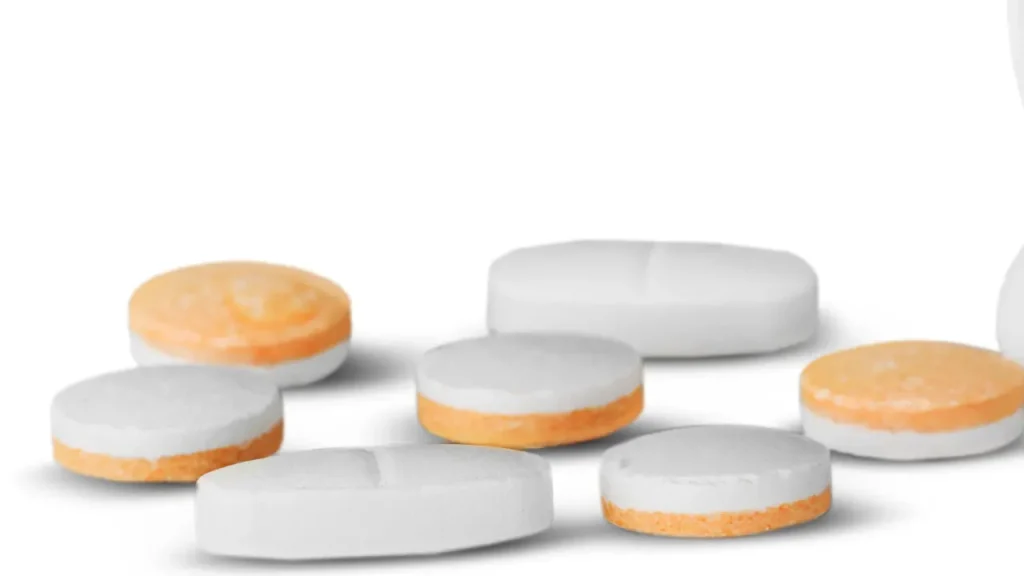Bovine colostrum is the first milk that cows make after giving birth to a calf. Bovine colostrum has drawn a lot of interest recently because of its possible health advantages. This nutrient-dense material is a good source of proteins, lipids, carbs, vitamins, minerals, and bioactive components including immunoglobulins and growth factors. Although colostrum’s main purpose is to provide newborn calves with passive immunity and vital nutrients, it has been proposed that these qualities might also enhance human health. This page offers a thorough analysis of the properties of bovine colostrum, as well as its health advantages, recommended dose, negative effects, possible drug interactions, and most ethical applications.
You May Also Like:
Keep Your Brain Young With the 5 Most Powerful Nootropic Supplements
Finding the Best Supplements for Brain Fog After COVID: 5 Top Brands Reviewed
Bovine Colostrum: Benefits, Dosage, Side Effects, Drug Interactions, and Other Important Information is an original (NootropicsPlanet) article.
Nature of Bovine Colostrum
More than 200 distinct components have been found in colostrum from cows in which growth factors, lactoferrin, and immunoglobulins are the components that have been investigated the most.
The main immunological components of colostrum are immunoglobulins (Ig), often known as antibodies. IgG is the isotype that is most prevalent in bovine colostrum, followed by IgA and IgM. By identifying and neutralizing pathogens like bacteria and viruses, these antibodies play a crucial part in the immune response.
Insulin-like growth factor 1 (IGF-1), transforming growth factor beta (TGF-), epidermal growth factor (EGF), and platelet-derived growth factor (PDGF) are among the growth factors found in bovine colostrum. These chemicals control how cells divide, proliferate, differentiate, and repair themselves, which helps to keep tissues intact overall.
An iron-binding glycoprotein with antibacterial, anti-inflammatory, and immunomodulatory qualities is called lactoferrin. By depriving bacteria, fungi, and viruses of iron, a necessary ingredient for microbial development. Their growth may be inhibited.
Health Benefits of Bovine Colostrum
- Bovine colostrum has been found to enhance gastrointestinal health by regulating the gut microbiota and maintaining the integrity of the gut lining. Intestinal epithelial cell growth and repair are aided by growth factors including IGF-1 and TGF-, whereas lactoferrin has antibacterial effects on pathogenic microorganisms.
- Immune Support: Bovine colostrum contains immunoglobulins that may provide passive immunity, supporting the immune system. These antibodies can identify and destroy microorganisms, possibly lowering the risk of infection and strengthening the body’s resistance to disease.
- Athletic Performance and Recovery: According to certain research, taking supplements containing bovine colostrum may enhance athletic performance and recovery. IGF-1 and other growth hormones may encourage the synthesis of new muscles, while lactoferrin’s anti-inflammatory qualities may lessen the inflammation and muscle damage brought on by exercise.
- Wound Repair and Tissue Repair: Bovine colostrum contains growth factors like EGF and PDGF that may promote cell migration, differentiation, and proliferation, thus hastening the repair of injured tissues.

Chemistry of Bovine Colostrum
Bovine colostrum is a complex biological material with many constituent parts that may have health advantages. The chemistry of these elements is essential to understanding how the bovine colostrum functions physiologically.
- Immunoglobulins are a necessary component of adaptive immunity. IgG is the immunoglobulin with the highest concentration found in bovine colostrum. IgG has the ability to kill infections by attaching to antigens on their surface. Pathogens are opsonized or agglutinated as a result of this contact, which makes it easier for the immune system to get rid of them.
- Growth Factors: IGF-1, TGF-, EGF, and PDGF are just a few of the growth factors that are abundant in cow colostrum. Through the activation of certain cell-surface receptors and subsequent signaling pathways, these signaling molecules govern cell growth, differentiation, and repair.
- Lactoferrin has antibacterial, anti-inflammatory, and immunomodulatory effects. It is an iron-binding glycoprotein. Because of its capacity to chelate iron, infections are deprived of this necessary mineral, which prevents their proliferation.
Physiological Mechanisms of Action of Bovine Colostrum
The physiological mechanisms of action of the key components of bovine colostrum, such as immunoglobulins, growth factors, and lactoferrin, are responsible for the beneficial effects on health.
- Immunomodulation: Immunoglobulins in cow’s milk may promote passive immunity, improving the body’s resistance to infections. These antibodies aid in a strong immune response by identifying and neutralizing invaders, shielding the host from disease.
- Digestive Health: Bovine colostrum promotes gut health through numerous methods. As mentioned, growth hormones like IGF-1 and TGF- may promote the growth and repair of intestinal epithelial cells, preserving the lining’s structural integrity. By preventing the development of harmful bacteria, lactoferrin’s antimicrobial action contributes to the maintenance of a healthy gut microbiota. Additionally, bacteria and toxic compounds in the stomach may be neutralized by immunoglobulins, lowering the risk of infection and inflammation.
- Tissue Repair and Wound Repair: Bovine colostrum’s growth factors help hasten the repair of injured tissues. They promote tissue regeneration and repair by enhancing cell migration, differentiation, and proliferation. For instance, it is well-recognized that EGF and PDGF are crucial for the healing of skin wounds.
- Athletic Performance and Recovery: There are various ways that bovine colostrum may enhance athletic performance and recovery. IGF-1 may promote muscle protein synthesis, which helps muscles develop and become stronger. The anti-inflammatory qualities of lactoferrin may aid in reducing muscle damage and inflammation brought on by exercise which in turn result in a quicker recovery.
There is an inherent connection between the chemistry of bovine colostrum and its physiological modes of action. The intricate interactions of this nutrient-dense substance’s elements are thought to be responsible for the wide range of health advantages. The best way to utilize bovine colostrum as a nutritional supplement may be determined through additional study that is guided by a better comprehension of these systems.

Optimal Dosage of Bovine Colostrum
Age, weight, and general health state are just a few variables that affect the best amount of bovine colostrum to use. The majority of research has used colostrum powder with daily dosages ranging from 10 to 60 grams. It is advised to start with a smaller dosage and progressively raise it depending on tolerance and the desired health effects for each person. Before beginning a supplementation program, it is advisable to speak with a healthcare provider to establish the right dose for each person.
Side Effects of Bovine Colostrum
Bovine colostrum is often regarded as safe for eating, with minimal negative effects having been noted. However, especially at larger dosages, some people may have gastrointestinal discomfort, such as bloating, gas, or diarrhea. By lowering the dosage or splitting it into smaller, more frequent doses, these effects may be lessened.
When utilizing bovine colostrum, anyone with a history of sensitivity to cow’s milk or milk products should use care since it may cause an allergic response. Hives, wheezing, trouble breathing, and swelling of the face, lips, tongue, or throat are all indications of an allergic response. Such situations call for rapid medical care.

Potential Substance Interactions with Bovine Colostrum
On possible interactions between bovine colostrum and other drugs, there is not much information. Bovine colostrum might conceivably interact with immunosuppressive treatments, reducing the therapeutic impact of these therapies owing to its immunomodulatory qualities. Before utilizing bovine colostrum, if you are taking immunosuppressive drugs, such as corticosteroids or those recommended for autoimmune diseases, you should speak with your doctor.
Furthermore, insulin and other diabetic treatments may interfere with the growth hormones in the bovine colostrum, notably IGF-1. The concomitant use of bovine colostrum and antidiabetic medicines may raise the risk of hypoglycemia because IGF-1 may have effects that are similar to those of insulin. Before consuming bovine colostrum, diabetics should regularly check their blood glucose levels and speak with their healthcare professional.
Responsible Use of Bovine Colostrum
Consider the following suggestions to guarantee the ethical use of bovine colostrum as a dietary supplement:
- Quality: To assure purity, potency, and the absence of impurities, choose a reputed brand that delivers high-quality, independently tested goods.
- Dosage: Start with a smaller dosage and gradually raise it to the advised tolerated dosages according to a healthcare professional’s advice.
- Allergies: Be mindful of possible allergic responses, especially if you’ve previously had an allergy to cow’s milk or other dairy products.
- Drug Interactions: To assess the feasibility of supplementing with bovine colostrum and to avert any interactions, talk to your doctor if you take any medicines, notably immunosuppressants or antidiabetic medications.

Bovine Colostrum:
Conclusion
Bovine colostrum is the initial milk from cows after birth. This specialized form of milk is known for its rich nutrient composition and various potential health benefits as it contains essential antibodies, growth factors, vitamins, and minerals. Bovine colostrum is believed to help build better gastrointestinal health and immune support due to the complex biological constituent. It is also used by athletes to increase their performance and muscle recovery. However, you should always seek consultations from healthcare professionals when considering colostrum to ensure suitability and proper usage for specific health needs. A large amount of research done on colostrum powder has stated that 10 to 60 grams is a good range for a daily dose of this supplement.
References:
- Bovine Colostrum: Its Constituents and Uses. Retrieved from: https://pubmed.ncbi.nlm.nih.gov/33477653/
- Bovine Colostrum and Its Potential for Human Health and Nutrition. Retrieved from: https://www.ncbi.nlm.nih.gov/pmc/articles/PMC8255475/
- Clinical Applications of Bovine Colostrum Therapy: A Systematic Review. Retrieved from: https://pubmed.ncbi.nlm.nih.gov/24571383/
- Bovine Colostrum Applications in Sick and Healthy People: A Systematic Review. Retrieved from: https://pubmed.ncbi.nlm.nih.gov/34202206/
- Effects of Long-Term Supplementation of Bovine Colostrum on Iron Homeostasis, Oxidative Stress, and Inflammation in Female Athletes: A Placebo-Controlled Clinical Trial. Retrieved from: https://pubmed.ncbi.nlm.nih.gov/36615842/
Important Note: The information contained in this article is for general informational purposes only, and should not be construed as health or medical advice, nor is it intended to diagnose, prevent, treat, or cure any disease or health condition. Before embarking on any diet, fitness regimen, or program of nutritional supplementation, it is advisable to consult your healthcare professional in order to determine its safety and probable efficacy in terms of your individual state of health.
Regarding Nutritional Supplements Or Other Non-Prescription Health Products: If any nutritional supplements or other non-prescription health products are mentioned in the foregoing article, any claims or statements made about them have not been evaluated by the U.S. Food and Drug Administration, and such nutritional supplements or other health products are not intended to diagnose, treat, cure, or prevent any disease.


